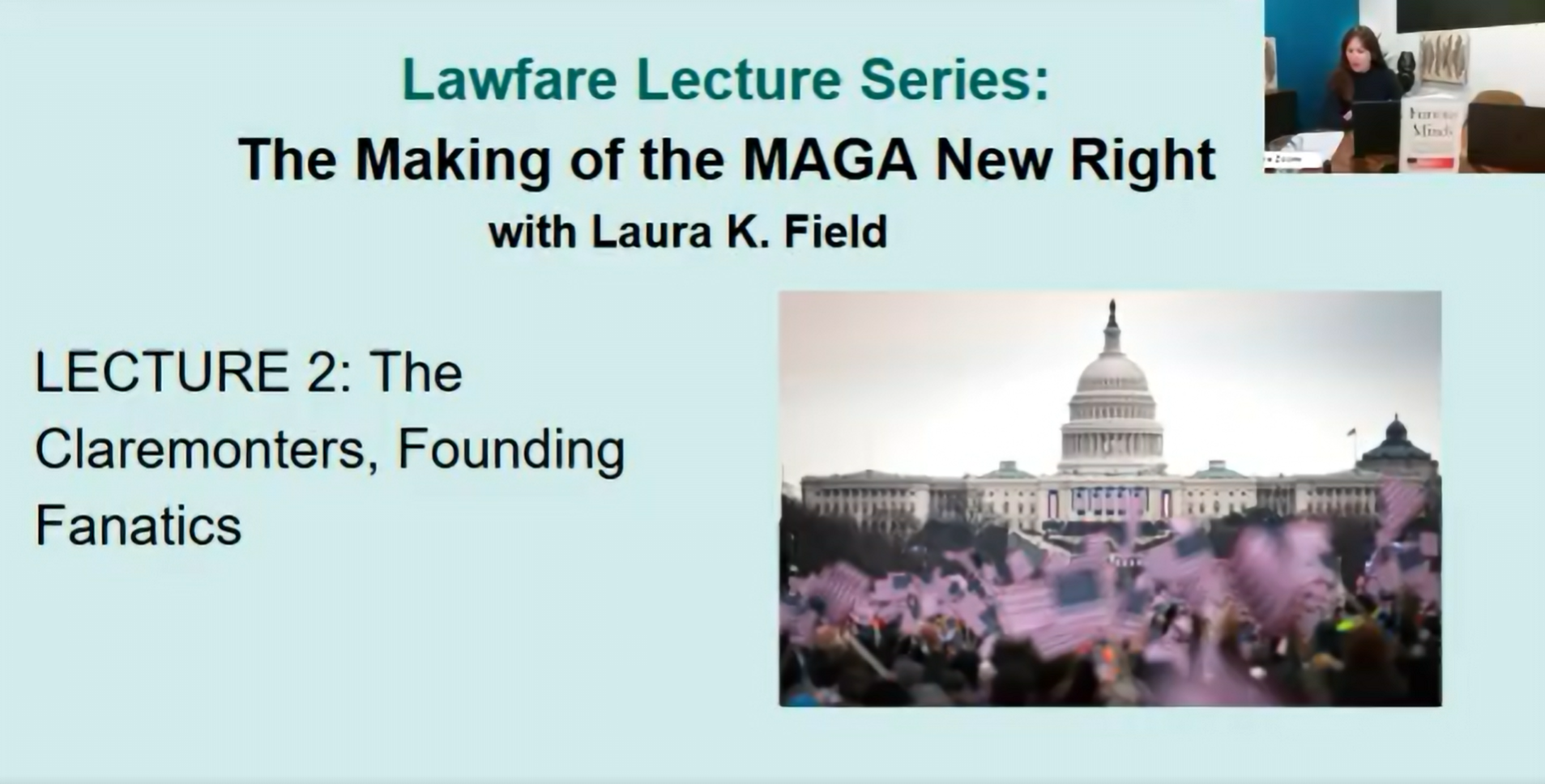Today's Headlines and Commentary
The Russian government has allowed thousands of North Koreans to enter and work in Russia, potentially violating United Nations sanctions, says the Wall Street Journal. The U.N. Security Council barred governments of all member countries from issuing new work permits to North Koreans in September 2017, since then, however, Russia has registered more than 10,000 North Korean workers and provided more than 700 permits. U.N.
Published by The Lawfare Institute
in Cooperation With

The Russian government has allowed thousands of North Koreans to enter and work in Russia, potentially violating United Nations sanctions, says the Wall Street Journal. The U.N. Security Council barred governments of all member countries from issuing new work permits to North Koreans in September 2017, since then, however, Russia has registered more than 10,000 North Korean workers and provided more than 700 permits. U.N. officials said they are currently investigating all potential violations of the ban.
A federal appeals court ruled that President Trump’s executive order withholding funding from sanctuary cities is unconstitutional, reports the Washington Post. Five days into his presidency, Trump signed an executive order mandating that cities that do not cooperate with federal immigration enforcement efforts “do not receive Federal funds, except as mandated by law.” A district court issued a nationwide injunction on the order last year. The appeals court did not uphold the injunction on Wednesday. Instead, the three-judge panel remanded the case back to the district courts for further discussion on the nationwide impact of the order.
The United States imposed sanctions on two Turkish cabinet officials in protest of the trial of an American pastor whom Turkey alleges supported terrorism, says Reuters. Andrew Brunson was arrested in 2016 on suspicions that he supported the failed military coup launched against President Recep Tayyip Erdogan in July 2016. The U.S. now seeks Brunson’s immediate return to the United States. Turkey’s foreign ministry called the sanctions a “hostile stance” and promised retaliation.
The Justice Department unsealed indictments on Wednesday charging three Ukrainian nationals with crimes related to their membership in the international cybercrime group “Fin7,” reports the Post. The indictments of Fedir Hladyr, Dmytro Fedorov and Andrii Kolpakov detail an array of charges stemming from the trio’s involvement in a years-long hacking campaign that targeted at least 100 U.S. companies and stole more than 15 million credit card numbers. Hladyr is currently in custody in the United States. Fedorov and Kolpakov are in custody in Poland and Spain, respectively, awaiting extradition.
Google is developing a search engine that will comply with China’s censorship laws, according to BBC. The tech company withdrew from China in 2010 in order to protest the nation’s limitations on free speech, but in an apparent about-face, the company’s new creation will remove terms such as “human rights” and “religion” from online articles. A Google spokesperson declined to comment on “speculation about future plans.”
A top U.S. military commander submitted plans to significantly decrease the presence of U.S. troops in Central and West Africa, reports the New York Times. The plans follow an ambush in Niger last year in which four American soldiers were killed. In the wake of that attack, many U.S. lawmakers admitted that they did not even know the United States had troops in Niger at the time. The majority of U.S. troop deployments in Africa focus on training local militaries to combat growing extremist threats. Gen. Thomas D. Waldhauser, head of U.S. Africa Command, was adamant that the shift in strategy does not constitute the U.S. “walking away” from the region. Rather, it will allow the U.S. military to more efficiently protect American interests around the globe.
President Trump is pressing his lawyers to reach an agreement that will allow him to sit for an interview with Special Counsel Robert Mueller’s office, according to the New York Times. Three people briefed on the matter said that the president is eager to speak with investigators. Negotiations between Trump’s lawyers and the special counsel’s office have stretched on for more than eight months. In April, Mueller reportedly provided the president’s legal team with a list of questions the special counsel would like to ask Trump.
ICYMI: Yesterday on Lawfare
Lynn Kuok analyzed how the U.S. should counter China’s actions in the South China sea.
Timothy R. Health highlighted China’s efforts to secure its place in the international order in a post-U.S. led world.
Jenna Consigli outlined the complicated judicial questions involved in prosecuting Islamic State fighters.
Victoria Clark posted the indictments of three members of the international cybercrime group “Fin7.”
Charles Church, a member of Abu Zubaydah’s legal team, explained what politicians and the media still get wrong about his client’s case.
Ed Stein offered his analysis of the Deter Act: A bill in Congress that aims to discourage electoral interference.
Autumn Brewington detailed the ever-present, unspoken references to Russia at Paul Manafort’s Virginia trial.
Jen Patja Howell posted this week’s episode of Rational Security in which Shane Harris, Susan Hennessey, Tamara Cofman Wittes, and Benjamin Wittes covered TSA tracking, Trump’s offer to Iranian leader Hassan Rouhani, and more.
Email the Roundup Team noteworthy law and security-related articles to include, and follow us on Twitter and Facebook for additional commentary on these issues. Sign up to receive Lawfare in your inbox. Visit our Events Calendar to learn about upcoming national security events, and check out relevant job openings on our Job Board.



.png?sfvrsn=bd249d6d_5)

